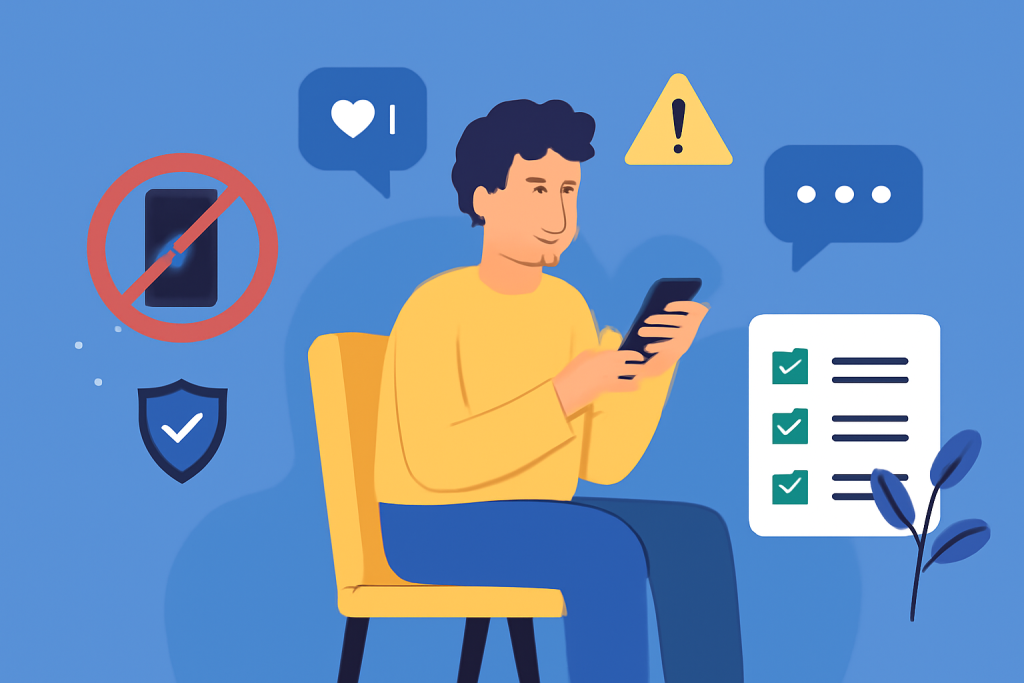Social media has become an integral part of daily life for billions of people worldwide. Platforms like Facebook, Twitter, Instagram, TikTok, and LinkedIn serve as hubs for communication, entertainment, news, and professional networking. However, as the influence of social media grows, so does the importance of using it responsibly. Learning how to use social media responsibly is crucial not only for protecting your personal well-being but also for fostering a healthier online community.
This article will explore emerging trends and best practices for responsible social media use. It offers practical guidance to help readers maintain control over their digital lives while contributing positively to the online ecosystem.

Why Responsible Social Media Use Matters Today
The growing awareness of social media’s impact on mental health, privacy, and society has put responsible use at the forefront of digital conversations. Recent studies link excessive or careless social media use to anxiety, depression, misinformation spread, and damaged relationships (Twenge & Campbell, 2018; Oxford Internet Institute, 2023). Moreover, incidents of data breaches and privacy violations highlight the need for users to be vigilant.
Learning how to use social media responsibly means understanding these risks and adopting habits that safeguard personal well-being and respect others. It’s about balancing the benefits of connection with the need for thoughtful engagement.
Emerging Trends in Responsible Social Media Use
Several current trends reflect how users and platforms are responding to the challenges of social media:
- Digital Well-being Tools: Platforms are introducing features such as screen time reminders, usage dashboards, and content filters to encourage healthier habits (Google Digital Wellbeing, 2024).
- Fact-Checking and Misinformation Alerts: To combat fake news, many social media companies now provide fact-check labels and warnings on questionable content.
- Privacy-First Features: Enhanced privacy settings and encryption options empower users to control who sees their information.
- Community Guidelines and Content Moderation: Platforms are increasing efforts to moderate harmful content and enforce community standards more strictly.
How to Use Social Media Responsibly: Practical Steps
Whether you are a casual user or a content creator, adopting responsible social media practices is essential. Here are key strategies to consider:
1. Manage Your Time on Social Media
Excessive use can affect mental health and productivity. To stay in control:
- Set daily limits using built-in screen time tools or third-party apps.
- Schedule social media breaks and “offline” hours.
- Avoid checking social media first thing in the morning or right before bed.
2. Think Before You Post
Every piece of content shared contributes to your digital footprint:
- Reflect on the accuracy and impact of your posts.
- Avoid sharing unverified news or rumors.
- Be mindful of privacy — do not post sensitive personal information.
- Respect others’ privacy and obtain consent before sharing images or details involving them.
3. Engage Positively and Respectfully
The tone and behavior you exhibit online shape the community atmosphere:
- Practice empathy when interacting with others.
- Avoid participating in or spreading harassment, bullying, or hate speech.
- Use constructive language, especially in disagreements.
4. Protect Your Privacy and Security
Keeping your data safe should be a priority:
- Regularly review and adjust privacy settings on each platform.
- Use strong, unique passwords and enable two-factor authentication.
- Be cautious with third-party app permissions.
5. Stay Informed About Platform Updates and Policies
Social media platforms frequently update features and guidelines:
- Follow official announcements to stay aware of changes.
- Understand community standards and report content that violates rules.
- Use platform tools designed to control your experience, such as content filters and mute/block options.
6. Educate Yourself on Recognizing Misinformation
With misinformation widespread, becoming a critical consumer of content is essential:
- Cross-check information from multiple reputable sources before believing or sharing.
- Watch for red flags like sensational headlines or poor grammar.
- Use fact-checking websites like Snopes or FactCheck.org.
The Role of Businesses and Influencers in Promoting Responsible Use
Beyond individual users, businesses and influencers hold significant sway on social media culture. They can lead by example:
- Sharing truthful, transparent content.
- Encouraging positive community interaction.
- Avoiding sensationalism or manipulative tactics.
- Supporting digital well-being campaigns and mental health initiatives.
Conclusion
Understanding how to use social media responsibly is a vital skill in today’s digital age. By managing time, engaging thoughtfully, protecting privacy, and staying informed, users can enjoy the benefits of social media while minimizing its potential harms. As social media continues to evolve, embracing responsible practices will contribute to healthier online communities and more meaningful digital interactions.
References
- Twenge, J. M., & Campbell, W. K. (2018). Associations between screen time and lower psychological well-being among children and adolescents: Evidence from a population-based study. Preventive Medicine Reports, 12, 271-283. https://doi.org/10.1016/j.pmedr.2018.10.003
- Oxford Internet Institute. (2023). Social Media and Mental Health Report 2023. University of Oxford.
- Google Digital Wellbeing. (2024). Tools to Help You Manage Screen Time. https://wellbeing.google/tools/






